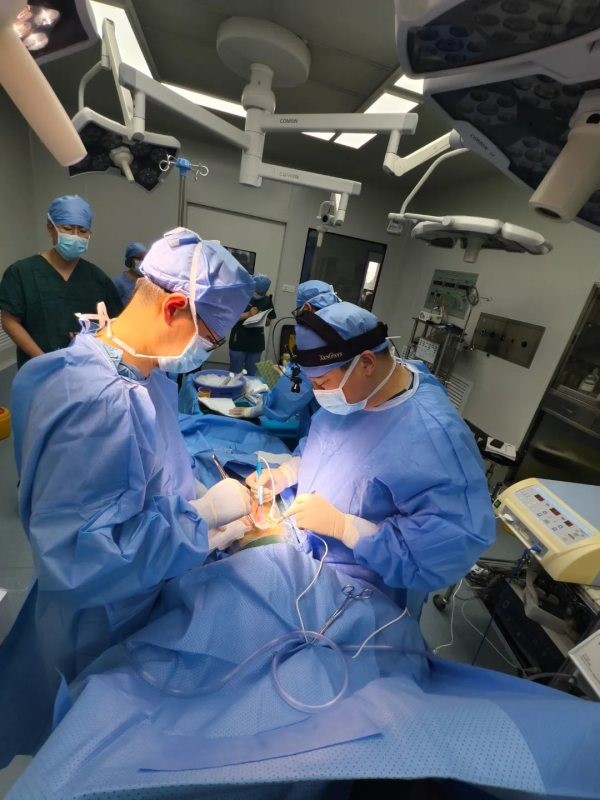Chinese scientists conduct world's first liver xenotransplantation surgery for human successfully

Photo: First Affiliated Hospital of Anhui Medical University
Chinese scientists have successfully transplanted the liver of a gene-edited pig into a 71-year-old male patient with giant right lobe liver cancer. The patient is able to move freely without any acute or hyperacute rejection reactions seven days after the surgery.This is the world's first liver xenotransplantation surgery of a living human and demonstrates China's xenotransplantation technology has reached the forefront globally and will become one of the most significant breakthroughs in the medical field, according to a release from the First Affiliated Hospital of Anhui Medical University.
The surgery was conducted by Professor Sun Beicheng's team from the First Affiliated Hospital of Anhui Medical University, in collaboration with Professor Wei Hongjiang's team from Yunnan Agricultural University on May 17.
As interventional therapies were ineffective and there was a risk of imminent rupture, based on the principles of compassion and nonmaleficence, and with full consent from the patient and family members, the First Affiliated Hospital of Anhui Medical University convened an academic committee, clinical ethics committee for new technologies, organ transplant ethics committee, and animal ethics committee. These committees approved the xenotransplantation surgery for the patient.
During the surgery, the tumor in the patient's right liver was resected. It was confirmed that the remaining left liver lobe was insufficient to meet the liver function needs of the patient. Scientists transplanted the liver from a gene-edited pig into the right liver fossa of the patient. The surgery proceeded smoothly, and bile secretion began immediately.
Seven days after the surgery, the patient has been able to move freely without any acute or hyperacute rejection reactions. There are no abnormalities in the coagulation system, and liver function has returned to normal.
This successful xenotransplantation from transgenic pigs to living humans has opened up the frontier of xenotransplantation of genetically modified pig livers. It is the world's first liver xenotransplantation surgery of a living human, and the fifth xenotransplantation surgery of living humans globally, according to the release.
The surgery has also created several medical miracles, including setting the global standards for a pig liver implant , the use of immunosuppressive agents, and perioperative management for xenogeneic liver transplantation, which makes it possible for xenogeneic pig liver transplantation to enter clinical practice.
Research on organ xenotransplantation has made great progress over recent years. On March 10, a research team co-led by Dou Kefeng, an academician at the Chinese Academy of Sciences, and Tao Kaishan, director of the Department of Hepatobiliary Surgery at Xijing Hospital affiliated with Air Force Medical University, successfully transplanted an entire liver of a multi-gene edited pig into the body of a brain-dead patient as an auxiliary measure.
The Xinhua News Agency also reported on May 23 that Chinese scientists recently completed a case of pig-to-human liver-kidney combined xenotransplantation in Kunming, Southwest China's Yunnan Province.
The team successfully transplanted the kidneys and livers of genetically edited pigs into the body of a brain-dead individual through combined transplantation. This procedure confirmed the feasibility of using genetically edited pig organs in human organ transplantation, laying an important foundation for further development and improvement of xenotransplantation technology, according to Xinhua.
Global Times
